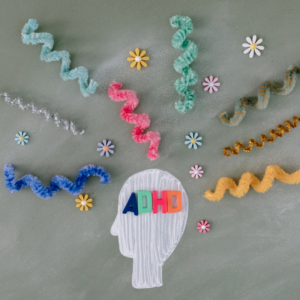
Many children struggle in school. 3 Learning Disabilities to be aware of
When children are not receiving the best grades in school, parents often attribute it to the kids not studying hard enough and giving their best. However, that may not be the case.
There are plenty of learning disorders children may have. While some are so rare that they are tough to diagnose, others are much more common. As an educator, I have witnessed firsthand three of the most common learning disabilities.
Dyslexia
As a certified Reading Specialist, I am very familiar with dyslexia. I’ve seen students that have had difficulty reading for years, and their parents are at their wit’s end. After a few short sessions, I quickly realize what the problem may be.
Dyslexia is a learning disability that is language-based and can deal with processing written or spoken language. Children (and adults) with dyslexia will have difficulty reading. Most suffer through not being able to read accurately or fluently.
Some of the more common types of dyslexia are:
● Phonological Dyslexia: Having difficulty breaking down words by matching up the letters with sounds. 
● Visual Dyslexia: Basic sight words can make up over half of what we read. People with visual dyslexia have trouble recognizing sight words even though they always see them.
● Rapid Naming Dyslexia: People will have difficulty naming letters and numbers in a row. This can significantly affect reading speed.
The good news is with hard work; dyslexia can certainly be overcome. Many famous people have been clinically diagnosed with dyslexia, and it has not held them back from achieving greatness. Some examples are Albert Einstein, Stephen Hawking, Jennifer Aniston, Henry Winkler, Muhammad Ali, and Tom Cruise.
Numerous study tips can be placed into action with students battling dyslexia. If you know a child that could benefit from extra support from qualified professional tutors, iAchieve can help. Our tutors can work with your child remotely or in person.
Dyscalculia
Perhaps those children who don’t seem to do well at math have the learning disorder dyscalculia. Students with dyscalculia may struggle with various things, such as understanding quantity, figuring out place value, recognizing time, using steps for solving math problems, and learning basic math facts, even though they have spent a considerable amount of time trying to understand them.
Unfortunately, if students are not diagnosed early, they may learn to hate mathematics. This can affect them later in life with poor money management, time management, and always getting behind schedules.
ADHD
Attention deficit hyperactivity disorder (ADHD) is not adequately considered a learning disability by some professionals, but ask educators who have had students with ADHD, and they will tell you it certainly affects their ability to learn. Plus, according to research, students 30 to 50 percent of students with ADHD will have another learning disability as well. And with three to five percent of children having ADHD, it is something to be aware of.
People with ADHD will have difficulty focusing on one task at a time and will have trouble staying still and paying attention. They can easily be distracted in the classroom and often remain in and out of their seats. As you can see, this could hurt their ability to learn.
On the other hand, some children may not experience hyperactivity and can be diagnosed with attention deficit disorder (ADD) if their only problem is their ability to focus.
Just a few of the more common signs to be aware of are; having a short attention span, forgetting or losing things, problems with organization, constant talking, problems with focusing, fidgeting even in calm settings, acting without thinking, and sometimes not being aware of putting themselves in danger.
If you are concerned about children you know that are struggling in school and may have a learning disability, reach out to their teacher, guidance counselor, special education educator, and other professionals that may be able to help determine what the problem is.
RELATED BLOG POSTS
Reading Tips for Children with Learning Disabilities
How Music Can Improve a Student’s Learning
5 Points Students With Disabilities Should Know About Their IEPs



